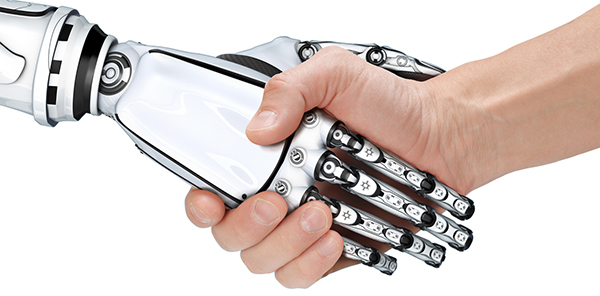Darshak Shah
Darshak is Evource Co-Founder and an Australian CPA, who has experience of working in over 8 different industries including with employers like NAB & Cancer Council. He has a great eye for process streamlining, improvement, change management, and transitions.
As work is done to bring machines closer to mimicking human thought, our world rapidly changes. Computers are becoming capable of doing more and more time consuming processes that people used to do.
When it comes to accounting we can look back in time to see how software has replaced handwritten ledgers. By checking today’s cutting edge technology we see that bank transactions are automatically being uploading and partially coded, instead of being entered by laborious manual entries. Computations can even be made to flag potential errors and compare to industry standards. Artificial Intelligence (AI) is being hailed as the next big step in technology. However what this means exactly, differs depending on the use for which the AI is programmed.
AI in accounting could be an incredible tool that replaces the need for a lot of grunt work. As well as the potential to improve efficiencies and reduce human error in tedious tasks, an AI could globalise bookkeeping systems, highlight potential errors to reviewed and even make suggestions for a client. This provides an incredible opportunity for accountants to focus more of their time on value added services that go beyond just the historical reporting of financial transactions.
Accounting and bookkeeping necessarily involves a lot of tedious processing in the underlying stages. It is exciting to think of the possibilities that a more advanced AI could bring to the table. It is even feasible that business owners could more simply interact with an AI to get their basic bookkeeping done. Employees may electronically, perhaps even verbally, submit timesheets, leaving the AI to automatically processes and pay their wages, while it flags any anomalies to be checked. As data improves an AI could simply flag any bank transactions that aren’t obvious for review and process the bulk of the bookkeeping entries. Perhaps the AI could even be installed on a portable device that would enable payments to be confirmed and coded right at the time of purchase.

Imagine how much this sort of technology would simplify bookkeeping! In micro businesses where the owner is capable of doing final checks, this has the potential to eliminate the need for a bookkeeper. However in larger businesses, a bookkeeper’s role would still be essential, albeit adapted for working with an AI.
When it comes to reports and tax preparation, an AI may be able to populate reports and raise flags for areas to be examined. They may even have the ability to run through a checklist to distinguish nuances such as deductible entertainment from non-deductible entertainment. In this sense it is feasible that AI in accounting could take care of the straightforward reporting that can be done by a simple checking of the boxes. This leaves more room for accountants to work on the more complex accounts, as well as on services that go beyond basic reporting. For example, discussing appropriate tax planning strategies, addressing concerns that a business owner has, and identifying unique opportunities that a specific business could take.
When it comes to human interaction there may even be a place for AI. Consider simple but time consuming tasks such as setting up appointments, providing clients a basic rundown of required information, and even explaining an analysis of historic accounting information, such as gross profits and how this compares to industry standards. That said, there is a certain quality in human interaction that machinery won’t ever be able to replace. Humans also have the capacity to read into situations and spot nuances that machines will miss.
The notion of total reliance on AI in accounting, bookkeeping or tax preparation, should be raised with caution. Computers are limited to functioning, not just in the way they are designed, but based on the input that their users provide. At the end of the day, there has to be a person who is responsible for ensuring that the final product has been checked and is accurate.
As valuable as it is, one critical problem with the introduction of AI is the potential for accountants to forget the underlying processes as they become too reliant on technology. This happens when accountants are trained in how to put the data in and present what it spits out. However when something doesn’t balance, or the information doesn’t come out right, they are stuck. It’s a simplistic level of training that works for basic accounts, but comes undone quickly when something more is needed. These type of basic, or checkbox trained accountants, wouldn’t be any better than an AI.

A good accountant understands what is going on underneath the technology. They have a solid grasp on double entry accounting, an awareness of nuances in the laws that aren’t black and white, and will have an eye for spotting things that are unusual, but may not necessarily be flagged in a computer system. These accountants also have a way on hearing and interacting with their client that enables them to do more than simply run the basic processes. These type of accountants provide the backbone to the field of accounting. They are the ones who will be able to take AI in accounting as the tool it is and use it to provide better, clearer, more efficient, and more valuable services to their clients.
